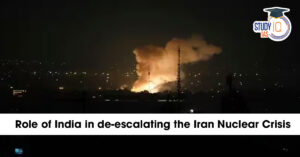Table of Contents
Current Neighbourhood Landscape
- Nepal: The return of K P Oli as Prime Minister has reignited tensions, as he has opted for a visit to China over India, breaking the norm of Nepalese PMs visiting India first.
- Bangladesh: The new government under Mohammed Yunus has shown signs of anti-India sentiment, complicating relations further.
- Maldives: Mohamed Muizzu’s election campaign centred on removing Indian military presence, indicating a shift in public sentiment against India.
- Sri Lanka: President Anura Dissanayake’s coalition does not openly oppose India but has historical grievances regarding Indian intervention.
- Bhutan: Although stable, Bhutan’s King has shown a slight tilt towards China, reflecting broader regional trends.
Underlying Factors in Regional Discontent
- China’s Counterbalancing Role: Neighbouring countries increasingly use China to counterbalance India’s influence.
- India’s Past Policies: Many of the challenges stem from long-standing practices of interference and dominance, not unique to the Modi government.
- Playing the anti-India card remains a rewarding political strategy for many leaders in South Asia.
- India’s Foreign Policy Approach
- Lack of Clear Priorities: The “Neighbourhood First” policy lacks clarity on whether it prioritises neighbourly concerns or India’s global aspirations.
- Overreach Without Gains: India’s interventions have not delivered significant strategic benefits, eroding moral authority and trust.
| Indian Policy in Nepal |
|
Recommendations for Future Policy
- “Neighbourliness First” approach:
- Respecting sovereignty and non-interference.
- Peaceful resolution of disputes without imposing conditions or expectations of reciprocity.
- Acknowledging the unique needs and concerns of each neighbour.
- Decency Over Dominance:
- Emphasise respect, peaceful coexistence, and regional stability.
- Avoid policies of browbeating and imposing India’s will on its neighbours


 German Chancellor Visit to India in 2026...
German Chancellor Visit to India in 2026...
 Iran Nuclear Crisis and India’s Role f...
Iran Nuclear Crisis and India’s Role f...
 H1B Visa Program, Beneficiaries, Eligibi...
H1B Visa Program, Beneficiaries, Eligibi...




















